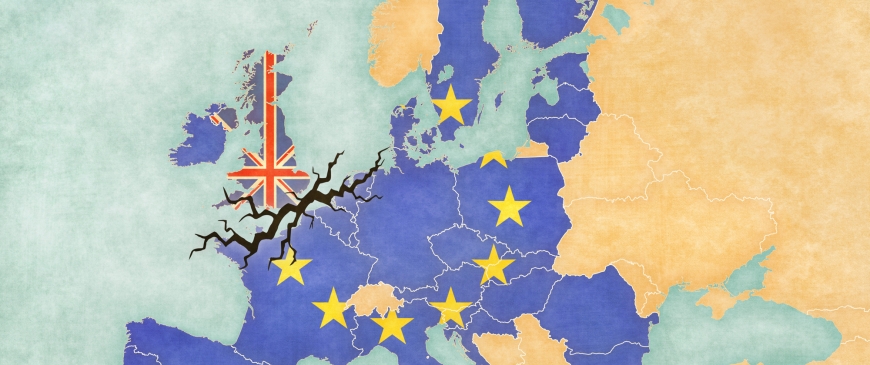
Viewpoint: Brexit throws uncertain EU off balance
A while ago France's National Front (FN) leader Marine Le Pen said that if the UK voted to leave the EU, it would be like the Berlin Wall falling in 1989.
She was right. Brexit is a momentous event in the history of Europe and from now on the narrative will be one of disintegration, not integration.
That does not mean that the EU will fall apart, or even that another country will leave, which is highly unlikely in the foreseeable future. But the centrist politicians who run nearly every EU member state will henceforth be on the defensive against the populist forces who oppose them and the EU.
At the top of the EU there are two competing approaches to the future of Europe. The European Commission, led by President Jean-Claude Juncker, believes in further integration. It generally seeks to respond to crises by pressing member states to accept "European" solutions that involve more powers for EU institutions.
But the President of the European Council, Donald Tusk, takes a different line. In recent weeks he has repeatedly warned that more centralisation would turn citizens against the EU.
"Obsessed with the idea of instant and total integration, we failed to notice that ordinary people, the citizens of Europe, do not share our Euro-enthusiasm," he said.
The Tusk line will prevail. In neither Germany nor France is there enthusiasm for a new EU treaty and steps towards federalism.
German clout
It is true that at some point EU leaders may need to tackle particular problems, like the euro or refugees, by giving specific new powers to EU institutions. But the governments will keep the Commission and the European Parliament under a tight rein. They will not let the Brussels institutions set the agenda.
In recent years both France's weakness and the UK's semi-detached status have made Germany the dominant country in the EU. On issues such as the eurozone crisis, refugees and the war in Ukraine, Germany has determined the EU's response. Fears of even greater German dominance explain why politicians in Rome, Paris and Warsaw are so horrified by the prospect of Brexit.
The Germans are particularly fearful of Brexit, and not only because they worry that other EU countries - now even more anxious about German dominance - may be tempted to form an alliance against them. The Germans have seen the British as allies for the causes of economic liberalism and smaller EU budgets.
But despite German worries, the EU is unlikely to become significantly more protectionist. Many EU governments share the UK's free market instincts. Nevertheless, without the British there will be less pressure for completing trade agreements and extending the single market.
US dismay
Policymakers in the US are horrified by the referendum result. They see the UK as a bridge between themselves and continental Europe. And they knew that on foreign policy questions, the UK often helps to steer the EU towards relatively tough or US-friendly positions.
The Americans now worry that, without British firmness, the EU will be more likely to relax the sanctions on Russia, imposed after it intervened in Ukraine.
EU policymakers know that they must spend the next several years handling the complexities of the Brexit talks. Prime Minister David Cameron's successor will have to request a particular model of association with the EU.
The EU will say that if Britain wants to stay in the single market, like Norway and Switzerland, it will have to accept free movement of labour and pay into the EU budget, as well as adopt single market laws that it will not be allowed to vote on.
EU will talk tough
Given the political toxicity of free movement in the UK, the new prime minister will probably prefer the "Canada option", meaning a free trade agreement (FTA). That would give very limited access to the single market and be particularly painful to the City of London.
An FTA would not allow the foreign banks in London to continue to do business across the EU while being regulated only by the British. Some of those banks in the City are already planning to move significant numbers of staff to Frankfurt, Paris, Luxembourg or Dublin.
EU leaders will have an interest in ensuring that the Union maintains a close economic relationship with the UK, for everyone's benefit. But they will not compromise on fundamental principles, such as free movement of labour as the price for single market access.
And they will not want the exit talks to be pain-free, easy or pleasant for the British. For they will wish to deter others from following the UK's example.
Charles Grant is director of the Centre for European Reform.
